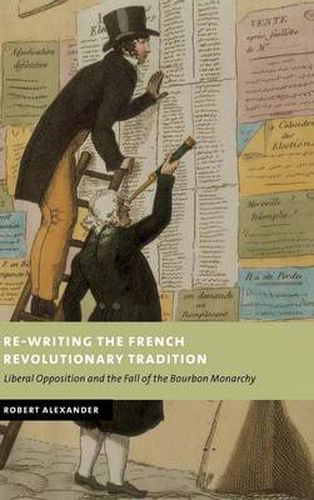Readings Newsletter
Become a Readings Member to make your shopping experience even easier.
Sign in or sign up for free!
You’re not far away from qualifying for FREE standard shipping within Australia
You’ve qualified for FREE standard shipping within Australia
The cart is loading…






This book examines the politics of the French Revolutionary tradition during the Bourbon Restoration and early July Monarchy. Robert Alexander argues that political change was achieved by legal grassroots organisation and persuasion - rather than by the revolutionary tradition of conspiracy and armed insurrection. Moreover, political struggle was not confined to the elite, as common material values linked the electorate to those deprived of the power to vote. Battle between advocates of national and royal sovereignty constituted the principal dynamic of the period, and fostered significant developments in party formation previously unrecognised by historians. To substantiate his claims, the author analyses relations among the Liberal Opposition, ultraroyalists and the state, concluding that although Liberals triumphed in the 1830 Revolution, thereafter they contributed to the destabilisation that produced an immobile Orleanist regime. Nevertheless, they had pioneered a model for change which could successfully adapt pursuit of reform to longing for civil order.
$9.00 standard shipping within Australia
FREE standard shipping within Australia for orders over $100.00
Express & International shipping calculated at checkout
This book examines the politics of the French Revolutionary tradition during the Bourbon Restoration and early July Monarchy. Robert Alexander argues that political change was achieved by legal grassroots organisation and persuasion - rather than by the revolutionary tradition of conspiracy and armed insurrection. Moreover, political struggle was not confined to the elite, as common material values linked the electorate to those deprived of the power to vote. Battle between advocates of national and royal sovereignty constituted the principal dynamic of the period, and fostered significant developments in party formation previously unrecognised by historians. To substantiate his claims, the author analyses relations among the Liberal Opposition, ultraroyalists and the state, concluding that although Liberals triumphed in the 1830 Revolution, thereafter they contributed to the destabilisation that produced an immobile Orleanist regime. Nevertheless, they had pioneered a model for change which could successfully adapt pursuit of reform to longing for civil order.